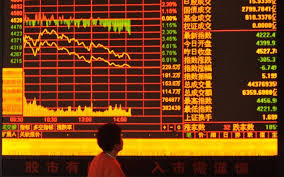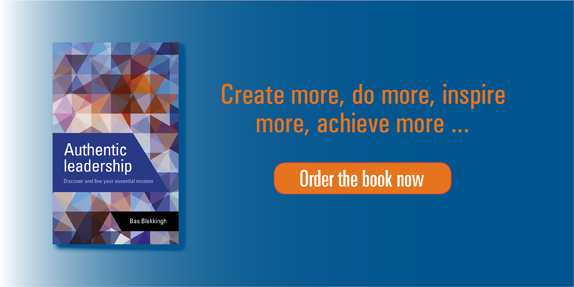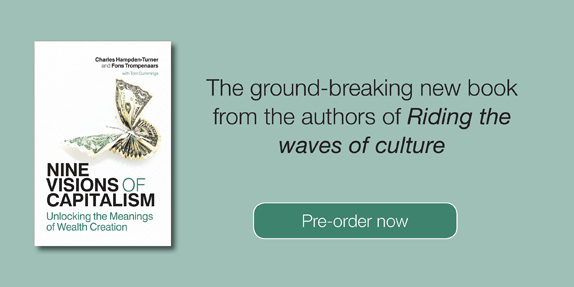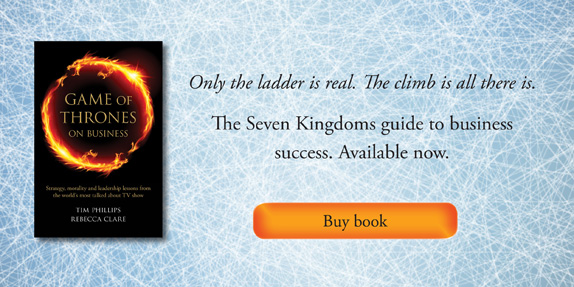Current events
How to win the Great British Bake Off
7 October 2015 by Catherine Holdsworth in Business and finance, Current events, Entertainment
As rain hits Britain today and the leaves suicidally fall to the ground, it signifies the end of summer and the final of the Great British Bake Off. We’ve been hooked in the office this year, and I’m sure everyone around the country is waiting with baited breath for the final this evening (that is, unless the world hasn’t ended before then).
The three finalists, Nadiya, Tamal and Ian have fought off stiff competition to get to the last week and we’ve come up with some career lessons that you can learn from these excellent bakers:
Nadiya
We’re not going to lie, Nadiya is our favourite contestant, perhaps in the history of bake off. We didn’t think we could find a funnier contestant than Norman but Nadiya has surpassed his wit and she is a much better baker. Nadiya has been star baker three times so far (tied with Ian) so she is in a strong position going into the final. However, her journey there has not been easy. In the beginning, Nadiya struggled with the technical challenges, often coming last or near the bottom. When faced with unknown situations, it can throw us off guard. When we’re out of our comfort zone, having to work with new clients, or having to clear up someone else’s (or your own) blunders, it can be hard to stay cool and get a suitable outcome for your business.
Nadiya has, at times, been anything but cool under pressure (the paperclip and soufflé incident from last week, for example) and she has a tendency not to believe that she is capable. However, Nadiya’s creativity and willingness to take risks has got her to the final. As with any strong leader, capability is everything. You can only fake it for so long and, trust us, your employees will know if you are ineffective when it comes to making tough decisions or coping when times get tough.

Ian
Ian, like Nadiya, is going into this final with three star baker titles to his name. He is competent and able to cope under even the toughest of pressures (and he was the first to receive the Mary Berry wink this season!) However, Ian’s stars were all awarded towards the beginning of the series, he peaked too early it would seem. Either that or his competitors were able to improve quickly and catch up with him. There are also rumours that he has been getting specialist training from a professional chef to up his game (we are not endorsing these rumours, nor are we endorsing Ian to be honest). When you’re competing with your colleagues or other businesses, it is important not to burn out too quickly. Ian’s arrogance is also something that could cost him the title.
One of the great things about Bake Off is the camaraderie between the contestants (well, except for bin-gate, but we won’t open that can of worms) and yet Ian seems to have remained a lone ranger in the tent. Perhaps his strategy is to keep his skills to himself, or to remain apart so that he can focus on making his bakes better than anyone else’s. However, when you’re in the ruthless world of business, sometimes buttering up (pun intended) the competition can be beneficial for both parties. Finding a way that both companies can work together and sharing knowledge is not always a bad thing. Though Ian’s chocolate well was a bit, well, anticlimactic, one can’t deny that Ian has great initiative and creativity, demonstrating his ability to make his own cake moulds. Seeing the problem from another angle and knowing what you can bring to the table can be great when leading a team and being familiar your strengths when times are tough can help get you out of a jam. But they could also alienate you among your colleagues, which may lead to mutiny in the ranks.
Tamal
Tamal is our favourite anaesthetist and our second favourite finalist of this year’s Bake Off. Tamal has been the lucky recipient of the Hollywood Handshake (not quite an Oscar!) and is adept at his baking skills. However, Tamal’s weakness is timing. When you’re up against the wall with a particular project, time management is everything. Being a successful leader is about how you manage your employees and delegate to make things work as efficiently as possible.
Tamal is this year’s unlikely heartthrob (we wouldn’t say no to one of his vol-au-vents) and has taken it all in his stride. In business, like with everything, there will be peaks and troughs in your success. Tamal never let his successes or disasters go to his head, and he certainly isn’t signing up to be the latest Cosmo centrefold. Being able to juggle his high-pressured job with baking every week and still coming out on top is a skill that we can all learn. Sometimes, though, it’s best to keep things simple.
Though we really liked Flora, it was clear that time and again, she didn’t listen to Mary and Paul’s advice and gave herself too much to do. Superiors try to guide you in the right direction and having too much on your plate can be catastrophic for your career and your personal life if not balanced well. Dorret was eliminated in week three after she had scraped through the first two weeks. She was the recipient of the Mary Berry scowl when she confessed one week that she had bought her cookie cutter (rather than make it herself) and the next week that she hadn’t even practiced her bake. Not preparing is essentially, preparing to fail. Showing up is only half the battle, when presenting, working in a team or just working on a solo project, being prepared is key to survival in the cut throat world of business.
Whoever wins tonight (go, Nadiya!) it’s definitely been a great series and we have been lucky enough, this year, not to have had too many baking blunders ourselves. There are many lessons we can take away from watching people bake cakes in tents each week, and Infinite Ideas has lots of advice on leadership, management and other ways to run your business. Perhaps you need help on how to Cultivate a cool career or you would like to learn more about Authentic leadership, we have a whole library waiting for you.
China’s stocks fall putting global economy on edge
24 August 2015 by Catherine Holdsworth in Business and finance, Current events, Nine visions of capitalism
This morning the FTSE plunged as the Chinese economy fell, putting investors around the world on a knife edge. Not since 2007 has there been such a drastic drop in global stock prices.
For many years, since the fall of Mao, the Chinese economy has flourished. It has been a great hybrid of ‘capitalism and communism’ as suggested in Charles Hampden-Turner and Fons Trompenaars’ riveting new book, Nine visions of capitalism. Look at the objects on your desk. Many of them will have been made in China. Over the past few decades, labour and manufacturing have been outsourced to China. Why? Well, quite simply, profit margin. For example, it is cheaper to catch fish in the North Atlantic, export it to China to be packaged and then ship it back to Britain than it is to package it in the UK. Clearly this is not an environmentally friendly way to do business, but from a purely capitalist perspective, it is effective.

Why is labour so much cheaper in China? Well, more people are willing to work for lower-paid jobs. With greater competition for jobs, companies can keep wages low. If you don’t want to work for a pitiful pay cheque, then someone else will. Mao’s regime forced millions into dire poverty and some are only now beginning to recover from this. Let’s, for now, put our assumptions about the working conditions aside.
Though definitely not a wholly capitalist country the People’s Republic of China has benefited from Western economic influence. While we outsource labour and other primary services to China, China in turn benefits from what Western capitalism can provide. Capitalism has allowed China to become one of the biggest economies in the world, while still claiming to be outside the capitalist bubble.
So, back to today. Over the past fortnight, the value of the yuan has been depreciating. Since then, trillions of dollars have been wiped from the FTSE. What does this all mean for the future of the economy? Perhaps China’s financial stability was poorer than anticipated. It would seem likely that the cheap labour and services that the West has been benefiting from for many years will now cost more. Trading with China will become a more costly endeavour and this could fundamentally change the face of our manufacturing and primary services.
Once again, our eyes are focused on those on Wall Street who are moving the intricate cogs that support the global economy. To the uninitiated every-person on the street, what goes on is something of a mystery. We are aware of the importance of the FTSE and the NYSE as well as how they have an important effect on the global economy. Like a heart monitor in an intensive care unit, the peaks and troughs of the FTSE index mean little to those who are not trained to recognise what it all means. But we can all imagine that the £91bn that was wiped off the FTSE today is not positive for the global economy.
China is undoubtedly a superpower with great influence. Western domination is being gradually usurped by China’s infiltration of other economies. Like dominoes, when one is affected it runs the risk of knocking down the others. We are making slow but progressive steps out of the recession that began in 2008. The memories, however, are still fresh in the minds of all who were affected, many of whom lost their homes, their jobs and their savings.
However this latest crisis develops the 2008 recession taught a valuable lesson: capitalism affects everyone under its umbrella, and often, it is those that need help most who get hit the worst when times are hard.
Capitalist leaders are called to account
17 August 2015 by Catherine Holdsworth in Business and finance, Current events, Nine visions of capitalism
Earlier this month, emerging political candidate Bernie Sanders called out the top CEOs in America and asked them to account for their actions. It’s a familiar story, the Fat Cats on Wall Street engage in illegal activity, make exorbitant amounts of money, and then let other people deal with the consequences (if you’ve seen The Wolf of Wall Street, you’ll know what we’re talking about). Why does this matter? We’re all aware that those with the biggest bonuses are not the ones feeling the pinch of the recession that we’re only just recovering from. Well, with Greece still in crisis, the UK threatening to leave the EU, and the American election on the horizon, these are very real issues that we need to grapple with.
In his letter to The Wall Street Journal, Sanders said that the ‘Wall Street leaders whose recklessness and illegal behavior caused this terrible recession are now lecturing the American people on the need for courage to deal with the nation’s finances and deficit crisis.’ In a two-pronged attack on the wealthiest people in America, Sanders published a report that shows how various CEOs and corporations have managed to evade $34.5 billion in tax. These people claim to want to close the deficit but are actively contributing to the problem. If the average person avoids tax, it probably won’t make that much of a difference to the government. However, to reach $34.5 billion in unpaid (or avoided) tax it would require a significant proportion of the population of America just refusing to play by the law. If it was the average man on the street, he’d go to jail. But because the top players on Wall Street maintain so much power, it would seem that they are beyond the law. It is time that we stopped turning a blind eye to this sort of avoidance. The capitalists that determine, by and large, our financial stability, are the ones who should be an example for the benefits of capitalism. America is perhaps the biggest capitalist country in the world, and yet it would appear that, rather than show how capitalism can be beneficial to the economy and help those all the way at the bottom of the pyramid, it is leading the way in demonstrating the worst aspects of capitalism: greed and the misuse of power.

When companies such as Apple, Google and Microsoft are now richer than the US government, one looks to them to set a positive example of how capitalism can benefit not just those who work for the corporations, but the government to whom they pay tax. These are global corporations but they all began in Silicon Valley. They are the very epitome of American capitalism at its best, highlighting how small start ups can become global brands. However, these companies should also be a marker for how all companies in the capitalist food chain can not only be successful, but create wealth and grow the economy. Not all companies will be as successful as these, but even small companies can take lessons from conscious capitalism. Charles Hampden-Turner and Fons Trompenaars in their new book, Nine visions of capitalism suggest that ‘Wealth is created when values are joined by meta-values, when for example workers receive higher wages for being more productive so there is money or value for everyone. Customers provide more revenue that is shared between employees and investors. Wealth is also created when products do not die and go to waste but become a cradle for another product.’
The iPod is an excellent example of a product which has evolved and grown, making way for better and smarter technology while maintaining the integrity of the original. So Apple is leading the way. You only have to look around you and you won’t be far away from an Apple product. This is demonstrative of capitalism being beneficial to the customer as well as the company. There are many people who are loyal to the Apple brand. However, with great wealth comes great responsibility. Apple and its chiefs must demonstrate a conscience in a world that is powered by wealth. Back in June, Taylor Swift called Apple to account when they said the they would not pay artists in the first few months of their music streaming service, ‘We don’t ask you for free iPhones. Please don’t ask us to provide you with our music for no compensation’, she wrote in an open letter to the company. Recognising the backlash that this would cause, Apple quickly did a 180 on their policy and announced that they would pay royalties. Case closed. Nevertheless, Swift proved that large companies are not infallible and that it pays to be seen as a company that is doing good.
Capitalism and the companies that contribute to the growth of wealth are not infallible, but they are incredibly wealthy and powerful. It will take more than Taylor Swift to bring down Wall Street. Yet the conscious capitalism movement is growing and it’s people like Swift and Sanders who have the platform to call those to account who should be doing more to help the economy grow rather than contribute to the deficit. It is incredibly unlikely that the next President of the United States will be the CEO of Coca-Cola or Microsoft, but their influence is not to be ignored. Those with such influence and power should work alongside governments to help find a solution to the economic crisis. Paying taxes will be a drop in the ocean compared to what they stand to lose if the house of cards that these people live in decides to topple.
Why immigrants succeed
30 July 2015 by Catherine Holdsworth in Business and finance, Current events, Nine visions of capitalism
No matter where you’ve been in Europe this summer, you can’t help be be aware of the growing problem that immigration is causing on first world countries. Thousands of migrants are making their way from Syria, Libya and Afghanistan, among many other countries, to the UK border in Calais. Crossing the Mediterranean Sea in treacherous conditions to be washed up on the coast of Italy or fished out of the water by the British Navy, European immigration is becoming an increasingly concerning issue.
Earlier this week, a man died while trying to get into the Channel Tunnel and today David Cameron issued a warning to all of those attempting to cross over to Britain every day: you will not find solace or welcome on our shores. Sure, the UK cannot accommodate the thousands of migrants that are hoping to breach its borders, nor can it afford to pay for their healthcare, housing and job-seeking period. However, this issues is now bigger than a UKIP placard. These migrants have risked their lives and left their families behind just for the chance at a life in Britain. Their own governments and countries have failed them. They have nothing to lose.

If you’d read any UKIP propaganda before the 2015 UK general election, you’d have thought that every British citizen was plagued by migrants; that there were 10 immigrants for every British person. This is not the case, nor is immigration bad for the British economy. If we send all the immigrants back to their homelands, do we have to recall all the British who have moved abroad as well?
Charles Hampden-Turner and Fons Trompenaars, authors of Nine visions of capitalism, state that ‘In a land of strangers you are defined by what you do, not where you come from.’ Statistically, immigrants in the UK contribute more to the economy than they take out in benefits, suggesting that they’re willing to to any job if it pays the bills, whereas there are Britons who are rejecting work on the basis of either ‘waiting for something better to come along’ or not wanting to lower themselves to clean toilets, for example. Hampden-Turner and Trompenaars offer a broader evaluation on the effect of migration:
What is it that immigrants have that overcomes the prejudices against them? They have at least two points of view or social contexts, the one they brought with them and that of their adopted land. Too many of us have just one. Immigrants must strive to include their diverse views with our own. It is when cultures collide that we learn – not only about others but about ourselves. Values are differences and immigrants know all about the differences they encounter daily. They can encompass different points of view.
Immigrants are also more likely to be individualistic. They have broken ties and moved away from old attachments, but they are also more likely to be communal, since their economic futures depend upon a network of fellow migrants and maintaining their close support. They are prepared to work harder for less in order to survive. That they better understand other differences between say, sellers and buyers, is not unexpected. We saw that where East meets West in Singapore, Hong Kong, Taiwan, South Korea and Malaysia the economies tend to be strong. These populations have also learned from both sides. Since birth rates have fallen in the affluent West we need educated immigrants to make up for this.
Of course immigrants are not always successful. Some are crippled by prejudice or by culture shock, or bring cultural practices with them that clash with majority values (female genital mutilation, for example). Moving from one culture to another makes you or breaks you and anti-immigrant feeling is easily aroused by the numbers of broken strangers, many in prison, some unemployed, claiming benefits or before the courts. Depending on their social class, indigenous citizens may encounter more losers than winners and generalize from this. Those who are different will not always be included. Tolerance is not enough. We should learn from immigrants.
Lord Sewell proves sticking to your day job is always best
28 July 2015 by Catherine Holdsworth in Business and finance, Current events
It’s almost August and Parliament has recently broken up for the summer. Sadly, David Cameron will not be pointing at fish like he has done every year since winning the election in 2010, but never fear, one politician has gifted us a nice scandal to take us into the summer holidays. Perhaps due to the fact that things were winding down for the summer, Lord Sewell took it upon himself to spice up the news during what the business world would deem, ‘cucumber time’.
This morning Lord Sewell announced his resignation from the House of Lords. Apparently he was a UK representative to Nato, and has run for Parliament several times. But the first time he registered on most of our consciousnesses was when he was caught red (or white) handed snorting cocaine off a prostitute’s breast. Nice work if you can get it, Lord Sewell, was that in your job description?
This latest scandal to rock the British elite has got us very puzzled in the Infinite Ideas office this morning. It’s the sort of wonderment that makes us wonder ‘Is enough never enough?’ Was Lord Sewell not happy with his high-paid job, comfortable living quarters and important social status? (We’re not sure that drug-taking with a sex worker is the best way to boost social reputations but, whatever floats your boat, My Lord.)

We like to find the silver lining in everything and perhaps we can all learn something from Lord Sewell’s blunder (apart from not hooking up with prostitutes and cocaine, a combination guaranteed to get you fired unless you work for a pimp). Though Sewell would have done better to stick to the benches in the House of Lords, it’s never a good idea to mix work and pleasure. It’s all very well to have banter with your boss, but you wouldn’t want him or her to catch you coked up to your eyeballs on a night out now, would you? In the grown-up world of being over twenty-one, it’s perhaps appropriate to act accordingly. We’re not trying to ‘kill your groove’ but perhaps encourage you to take a more positive attitude to work which means you won’t be tempted to resort to the ads in a telephone booth on the weekend.
So while it’s curtains for Lord Sewell’s career, it doesn’t have to be for you. If you get far too drunk at the office summer party and tell all your co-workers about THAT trip to Malia when you were nineteen, you’ll most likely to be the laughing stock of the office. But it is unlikely to get you fired. Unless you committed arson or murder, in which case your colleagues would do well to inform the police. It’s all fine and well to enjoy the social aspect of your job, after all, you spend most of you time there, but be wary of how you come off or you may find yourself out in the cold in need of a prostitute for company.
Infinite Ideas has lots more business tips and a range of books to help you get ahead in the office as well as loads of great summer deals on books. Perhaps Lord Sewell would have done well to heed some of our advice.
Game of Thrones leads Emmy nominations
20 July 2015 by Catherine Holdsworth in Business and finance, Current events, Entertainment, Game of Thrones on Business
On Thursday the 2015 Emmy nomination were announced and Game of Thrones leads the field. Though it’s disheartening to see that Kit Harrington and his lovely hair did not get a nomination, Peter Dinklage, Lena Heady and Emilia Clarke will all be hoping to take home a shiny golden trophy.
When one looks at the nominations on a broader scale, the actors who are up for the big prizes are no longer people who found fame in TV. Maggie Gyllenhaal, Kevin Spacey and Liev Schreiber are all up for acting gongs, and all are big, well-established names in the world of film. What is turning them to TV all of a sudden? When you look at the current situation of the cinema box office, it is filled with sequels, prequels and reboots. It would seem that in the two hours or so that the director has to establish a relationship with the audience, they go for what works rather than something new and innovative.
We love TV now. It’s the viewing equivalent of sitting down with War and Peace or Moby Dick, investing a long time in a fantasy world, building relationships with characters and becoming seriously affected by their outcome (farewell Jon Snow). Televisions series allow for character and plot development in a way that film cannot provide. So, since audiences want familiarity, we have an extremely long film series with characters that we know and love time and time again. Don’t get me wrong, I love a superhero movie as much as any 15 year old boy does, but it doesn’t provide me with as much satisfaction as a ten part Game of Thrones series.

Producers and actors are now wise to the shift to television that audiences are making. With the creation of HBO and Sky and of course, bigger tellys, we are now closer than ever to having the movies in our very own home. It is a radical shift to the Hollywood business model and producers are finally waking up to what the audience wants. How can Hollywood compete with Netflix, a fast streaming service that gives the viewer autonomy (or so they think) to watch whatever they want , whenever and at a reasonable price?
It is unlikely that the Emmys will ever rival the Oscars for prestige and glamour, but it is clear the heavyweight actors, once nominated and winning at the Kodak Theatre are now finding themselves on the other side of the fence. Could giants such as Netflix and Amazon Prime actually reinvent the business model of Hollywood that has remained steadfast for over 100 years? Perhaps it’s too soon to tell, but with countless Emmy nominations to its name, Netflix is all set to ‘break the wheel’, much like our favourite queen, Daenerys Targaryen.
We love business and we love popular culture, what better way to celebrate the Emmy nominations and the build up to the awards by reading Game of Thrones on Business. Netflix, take note!



